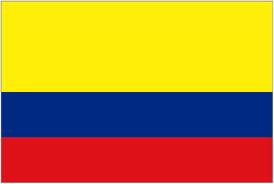 Presented by the Colombian civil society organizations:
Presented by the Colombian civil society organizations:
CIMUN, Ifarma, Foundation, and Misión Salud (Link)
[Bogotá, Colombia 30th June, 2016 ] .. It is important for us to offer for your consideration, and for the consideration of the UN Secretary-General and UN Member States, a brief report on the specific situation we are currently facing in Colombia with regard to access to affordable medicines. This situation reflects both the urgent need for global governmental action that favors the human right to health as well as the need for strategies to address the pressure interests preventing governments and civil society from increasing access to affordable medicines using well-recognized and established legal flexibilities.
Imatinib is a life-saving leukemia drug on the World Health Organization’s Essential Medicines List. The drug is marketed by Novartis in Colombia, under the name Glivec®, at a price roughly double the average citizen’s income per year. Given the high price of the drug and the immense burdens the price places on the health system, in November 2014 the undersigned organizations requested that the Ministry of Health (MOH) of Colombia issue a compulsory licence on imatinib in order to facilitate the entry of affordable generic alternatives into the market and reduce the price of Glivec®. After 15 months of a laborious process, the MOH acknowledged, in Resolution 2475 of 2016, that affordable access to imatinib is a matter of public interest in Colombia — a procedural pathway to proceed to a compulsory license.
Nevertheless, there has been and still remains enormous pressure from several developed countries, from multinational pharmaceutical companies and even from Colombian trade authorities trying to block the public interest declaration and the issuance of the compulsory license. During the process leading to the public interest declaration, the Ministry of Health of Colombia received communications from the State Secretariat for Economic Affairs (SECO) of the Swiss Confederation, from officials of Colombian embassy in United States after meetings with U.S. Senate staff and the Unites State Trade Representative, from officials from the Colombian Patent Office, from Novartis Colombia and from Novartis International A.G., attempting to both misinform and dissuade the Government of Colombia from granting a compulsory license. The pressure included factual inaccuracies, distortions of international trade and intellectual property rules, threats of dispute settlement claims and even implied or perhaps explicit threats to suspend promised United States funding for the Colombian peace process via the “Paz Colombia” initiative if the compulsory license process were to proceed, as was widely reported following the leak of several memos from officials of the Colombian Embassy in the United States.
We are now waiting and hoping for Resolution 2475 to enter into force in order to proceed with the compulsory license procedure before the Patent Office of Colombia. Nonetheless, there are strong reasons to fear that at the end of this long road, a compulsory license in Colombia will be obstructed by the same type of pressure that has characterized the journey thus far.




